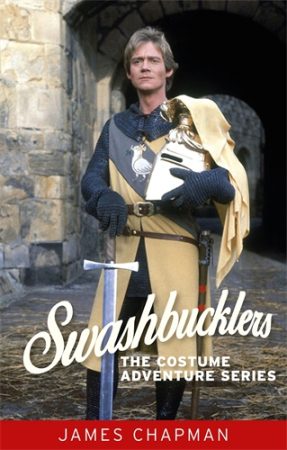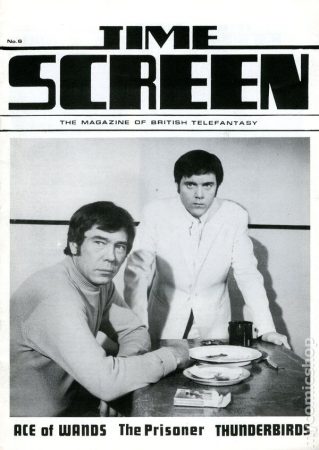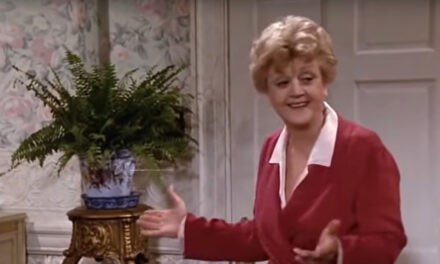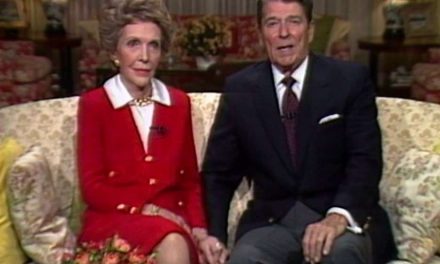“You need to watch all the episodes,” stated Professor James Chapman during his keynote speech ‘The forgotten history of the television swashbuckler’ at Egham’s ‘Forgotten, Lost & Neglected TV Drama’ conference in April 2015. And he’s absolutely right. It’s one of the reasons that I enjoyed his Swashbucklers: The Costume Adventure Series volume [i] so much; it gave such excellent examples of all the series that he examined because he clearly had slogged through all 143 of Richard Greene’s escapades in Sherwood Forest (aka Nettlefold Studios).
Now, this statement struck me as kind of obvious. If I write an article about Spyder’s Web (1972 plus VAT), then I need to watch all thirteen of Clive Hawksworth’s scenery-chewing assignments. But – hang on – did this mean that this didn’t happen in academia? And if you don’t watch all the episodes, isn’t there a danger that you’ll miss the point of a series because of bad sampling?
When I was still working in IT, I handled a lot of the government’s Consumer Expenditure data. And one year, the annual national expenditure on gas cookers was £0.00. Which was clearly ludicrous, because people are still making and selling gas cookers. In other words, the sample had been too small, and none of the people surveyed has bought a gas cooker that year. It was bad sampling.
That said, a couple of series that I adore I first encountered and fell in love with in 1982 via bad sampling. To accompany their coverage of the Football World Cup, ITV scheduled a ‘special season’ of archival repeats under the banner Best of British, while the BBC celebrated sixty years of broadcasting by delving into their own antiquated assets. The former kept me up late one night with a tantalising glimpse of The Prisoner (1967-8), Patrick McGoohan’s off-beat look at the individual society in the form of an ATV adventure series. This episode, The Girl Who Was Death, was wonderfully stylish fun… albeit comprising a spy spoof which Number 6 tells some children as a bedtime story [ii], and thus related to the show’s basic imprisonment/interrogation format by only the slenderest of reasons. Still, at least they didn’t choose Do Not Forsake Me Oh My Darling in which Patrick McGoohan only appears in one brief scene at the end [iii]. I mean, who would pick an instalment barely featuring the series’ lead actor…?
Well, as it turns out, the BBC would. Of the 52 episodes of Maigret (1960-1963) available, the Corporation represented their adaptations of Georges Simenon’s famous Parisienne detective with Seven Little Crosses – a case which comprises barely 5% Maigret. It’s a terrific episode as a child witness to a murder trails a killer across the city, being tracked in turn by the police… but all played out on Christmas Day meaning that Madame Maigret won’t let le patron out to play because his dinner will be ruined, restricting him to four short scenes at the end of the phone talking with Lucas and his team. There were complaints…
All of which brings me to [The] Naked City (1958-1959/1960-1963), the series I promised to explain about last time and then didn’t. Indeed, on the basis that if I need to explain properly what a series is about then I need to have seen all of it rather than risk bad sampling, then I am – ipso facto [iv] – totally unqualified to do what I’m just about to do. I’m still watching [The] Naked City and of the 138 shows, I’ve only viewed 63 thus far. And while that’s probably a better sample than the government’s Consumer Expenditure, by the nature of the series I’m still not sure I’ve got the full measure of it.
If you still have your old, physical edition of Brooks and Marsh’s The Complete Directory to Prime Time Network and Cable TV Shows 1946-Present, you’ll find [The] Naked City described as ‘Police Drama’. Which it is… but that’s not really doing it justice or telling you why it’s so brilliant. Although it has recurring characters, it’s actually an anthology series with meaty roles for guest stars as citizens of New York whose lives somehow become involved with the officers of the 65th Precinct.
Tonally each episode offers something different – some comedic (Take and Put), some philosophical (Which is Joseph Creeley?), some tragic (The One Marked Hot Gives Cold), some action-adventure (A Hole in the City), some small character studies (To Walk Like a Lion). While the hour-long episodes announce ‘Starring Paul Burke’, the real star of the series is actually New York itself – the volume of location filming on the streets, in the businesses and around the landmarks of the city is quite staggering.
This is a show that I’ve only recently come to via the miracle of DVD and the kindness of a friend. I was too young to see the original broadcasts in the 1960s, and when Channel 4 aired 26 selected editions in 1983 and 1985, I was an undergraduate whose time was occupied with one of the following: sex, drugs, alcohol and the ATV transmission dates for Randall and Hopkirk (Deceased) (1969-1970). I defy anyone to guess which…
Yes, [The] Naked City is fundamentally crime-melodrama – but enacted by guests who add gravitas or grins against some startling settings, and with such immense variety of storytelling that even now I don’t feel I’ve seen all the show is capable of. I believe that Prime of Life is a particularly important piece of television which was even promoted with full-page adverts on its debut… but I’ve not seen it yet, so I may be missing out on something vital as I promote this show to you.
So, yes, I’m still as guilty of bad sampling as anyone else. I did it in the 1980s when I’d assemble a seven-page fanzine article on Randall and Hopkirk (Deceased) based on no more than some memories, the TVTimes listings and that ratty b/w 16mm print of You Can Always Find a Fall Guy that used to do the rounds [v]. And it would appear that I’m still doing it now. But I try not to. Honest.
Umm… sorry to have wasted your time.
Andrew Pixley is a retired data developer. For the last 30 years he’s written about almost anything to do with television if people will pay him – and occasionally when they won’t. Professor Christine Geraghty made it to the end of his last blog. Did you make it to the end of this one?
Footnotes:
[i] A bargain at £80 from all good bookshops.
[ii] Spoiler Alert! Sorry… should really have said that first shouldn’t I?
[iii] Damn… done it again.
[iv] Or is it issi noho. I can never remember.
[v] Thank goodness it wasn’t The Ghost Talks.








